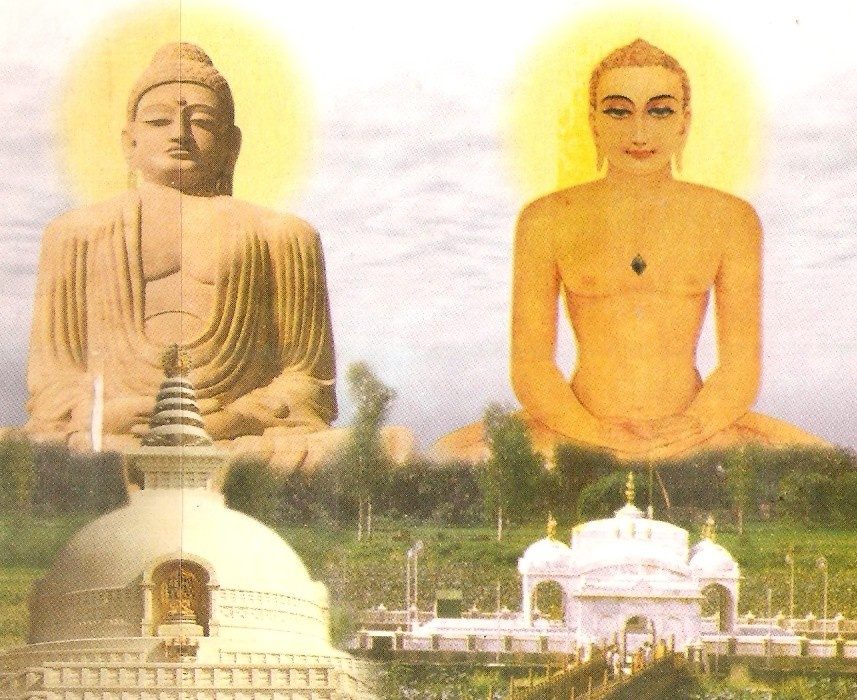Buddhism Vs Jainism
 |
Posted By Mr. Vijender Jain
Mahavira was a senior contemporary of Gautama Buddha, the founder of Buddhism. The Buddhist texts refer to Mahavira as an enlightened being. However there seems to be no personal contact or communication between the two when they were alive.
Interestingly, no rivalry seemed to have existed between Buddhism and Jainism in the early days of Buddhism, definitely not so much as the rivalry between them and the Ajivakas sect, with whom the Buddha himself often indulged in prolonged debates and discussions. However the very fact that the Buddha denounced extreme asceticism as the means to salvation suggests that there was no scope for any reconciliation between the two.
Both Buddhism and Jainism deny the existence of God or the First Cause which is responsible for the entire creation. But both acknowledge the presence of gods, who are higher than human beings in status but subject to change and evolution and also plane of higher beings, called Jinas or Kevalins by Jains and Bodhisattvas by Buddhists. The Bodhisattvas take interest in the welfare of the world and work for its liberation, but the Kevalins are rather indifferent to our prayers and problems and remain unaffected.
They also differ on the question of the status and evolution of individual beings. According to Jainism, after liberation, the Jiva or soul continues to remain as an individual soul, but in the highest state of purity and enlightenment. According to Buddhism, there is no soul but the individuality or character of an individual which after nirvana passes into some kind of indescribable nothingness that cannot be speculated upon.
The followers of Jainism acknowledge the presence of soul in every animate and inanimate object of the universe, including the elements of the universe, such as the earth, the water, wind, fire and air. Buddhists on the other hand believe that some vague kind of individuality do exist in the plants and animals, but they do not find any such individuality in the inanimate things. The concept of a world filled with innumerable individual souls or clusters of souls, or souls lying hidden in the rocks and mountains, the rivers and lakes, the stars and planets is simply untenable in Buddhism.
Both Buddhism and Jainism acknowledge the universality of karma and its effect on the individual beings. But in Jainism the karma is not a mere effect or result of ones actions, but a real substance that flows into each individual body or jiva as it indulges in various actions. This karmic substance which is a kind of fine matter or energy field, remains with it until it is got rid of through good conduct and self purification.
Though both Buddhism and Jainism originated and developed as distinct religions in the same geographical area comprising the present day Bihar and adjoining states, Buddhism crossed the frontiers of Indian subcontinent and went to far away lands like Nepal, China, far eastern countries, central Asia, Sri Lanka and Japan, while Jainism remained mostly confined to the land of its origin.
Strangely over a period of time, Buddhism disappeared from the Indian soil, despite of making several compromises with Hinduism, and having almost been absorbed into Hinduism as a sect, while Jainism survived in India, with its teachings intact, mostly untouched by the overwhelming philosophy and practices of Hinduism, at the same time imparting to the latter some of its noblest ideas.
-----------------------------------------------------
Mail to : Ahimsa Foundation
www.jainsamaj.org
R130309